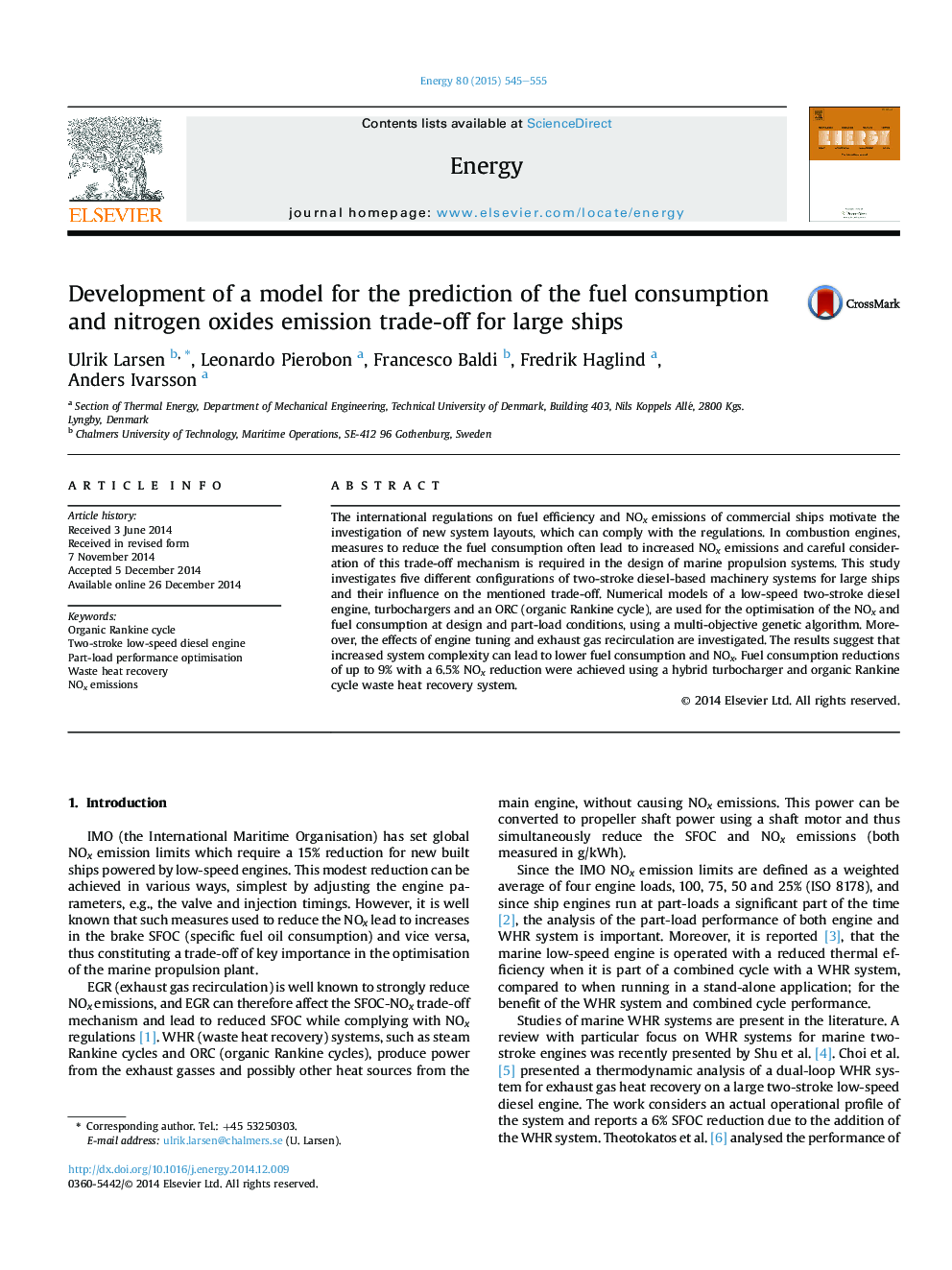| کد مقاله | کد نشریه | سال انتشار | مقاله انگلیسی | نسخه تمام متن |
|---|---|---|---|---|
| 1732030 | 1521466 | 2015 | 11 صفحه PDF | دانلود رایگان |
• A model to predict fuel consumption and NOx emissions for large ship is presented.
• Pareto fronts of the trade-off between fuel consumption and NOx are presented.
• Exhaust gas recirculation may yield low NOx emissions without higher fuel consumption.
• A hybrid turbocharger and ORC system result in up to 8% fuel consumption reductions.
• Tuning the main engine to lower efficiency leads to higher combined cycle efficiency.
The international regulations on fuel efficiency and NOx emissions of commercial ships motivate the investigation of new system layouts, which can comply with the regulations. In combustion engines, measures to reduce the fuel consumption often lead to increased NOx emissions and careful consideration of this trade-off mechanism is required in the design of marine propulsion systems. This study investigates five different configurations of two-stroke diesel-based machinery systems for large ships and their influence on the mentioned trade-off. Numerical models of a low-speed two-stroke diesel engine, turbochargers and an ORC (organic Rankine cycle), are used for the optimisation of the NOx and fuel consumption at design and part-load conditions, using a multi-objective genetic algorithm. Moreover, the effects of engine tuning and exhaust gas recirculation are investigated. The results suggest that increased system complexity can lead to lower fuel consumption and NOx. Fuel consumption reductions of up to 9% with a 6.5% NOx reduction were achieved using a hybrid turbocharger and organic Rankine cycle waste heat recovery system.
Journal: Energy - Volume 80, 1 February 2015, Pages 545–555
